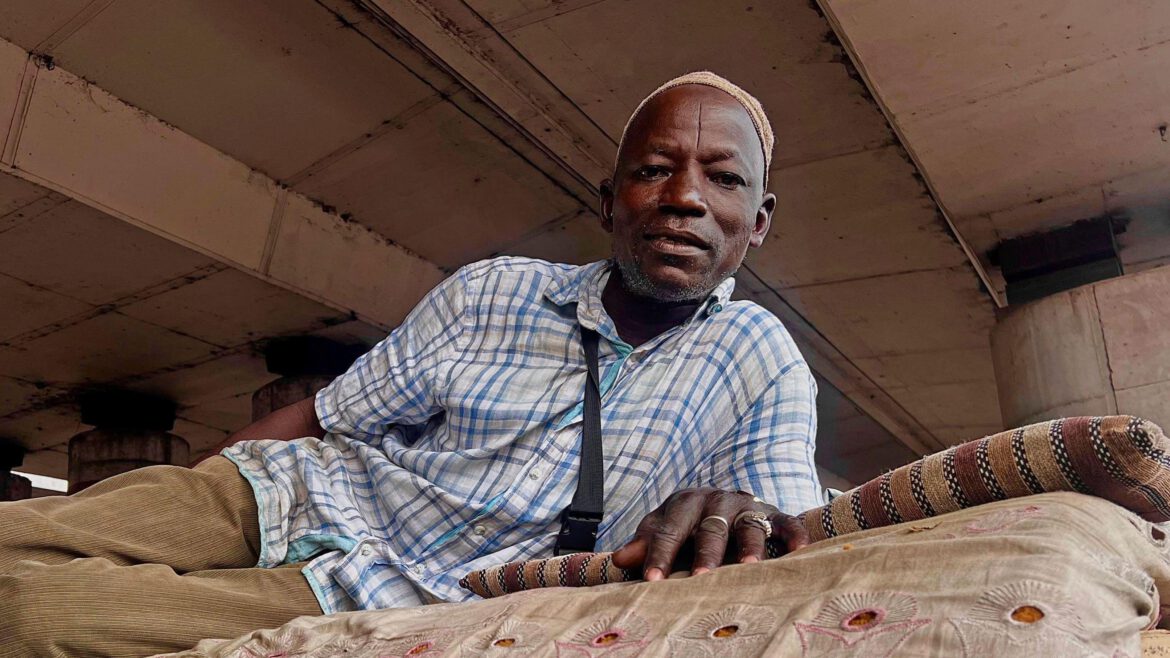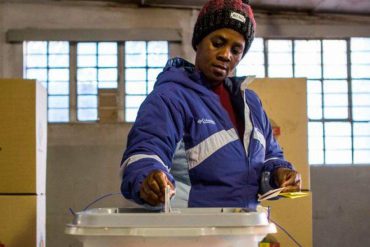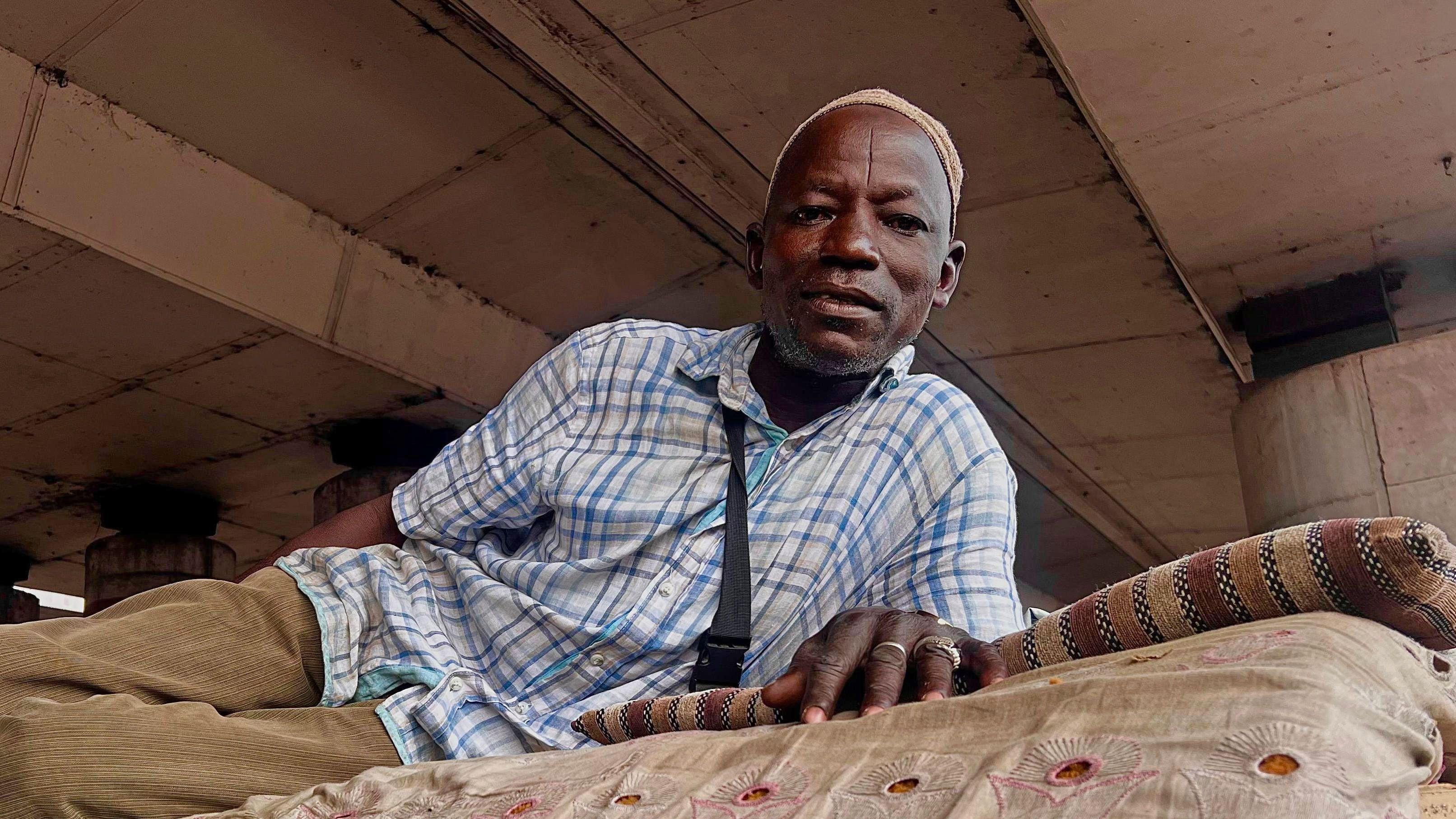
Liya’u Sa’adu, wey don live half im life under bridge for Nigeria commercial capital, Lagos see imsef as di “guardian” for di many oda homeless pipo wey don join am dia.
More dan 60 men now dey live inside di tight outdoor community – wit di busy and noisy Obalende Bridge ova dem – as to rent even small space don prove to be expensive for dem.
Mr Sa’adu advise di newcomers – young pipo from far-away towns and villages – on how dem fit dey streetwise for bubbling Lagos, wia e dey easy to fall into crime and drugs.
“I be 60 and e get some young pipo wey come here some months ago or some years ago. I see am as my responsibility to guide dem,” im tell BBC.
“E dey easy to lose track here for Lagos, especially for young pipo becos no family to watch dia steps.”
Like most of dose wey dey live under di bridge, im speak Hausa, di most common language wey dem dey speak for northern Nigeria.
Im arrive here from di small town of Zurmi wey dey north-western Zamfara state in 1994 – but all dose wey be im friends den don either die or dem don move back to dia hometowns or villages.
Tukur Garba, wey begin to live under di bridge five years ago tok say Oga Sa’adu advice dey invaluable and e dey command huge respect from pipo wey arrive to come try dia luck for Nigeria economic hub.
Di 31-year-old come from di far northern state of Katsina, about 1,000km (621 miles) away.
“E be like our elder broda becos e don dey here for so long. We usually need words of wisdom from am becos e dey easy to enter trouble for Lagos,” e tok.
- ‘I come find beta life for Lagos but I dey sleep under bridge’
- 7 ways to survive high cost of living wahala for Nigeria
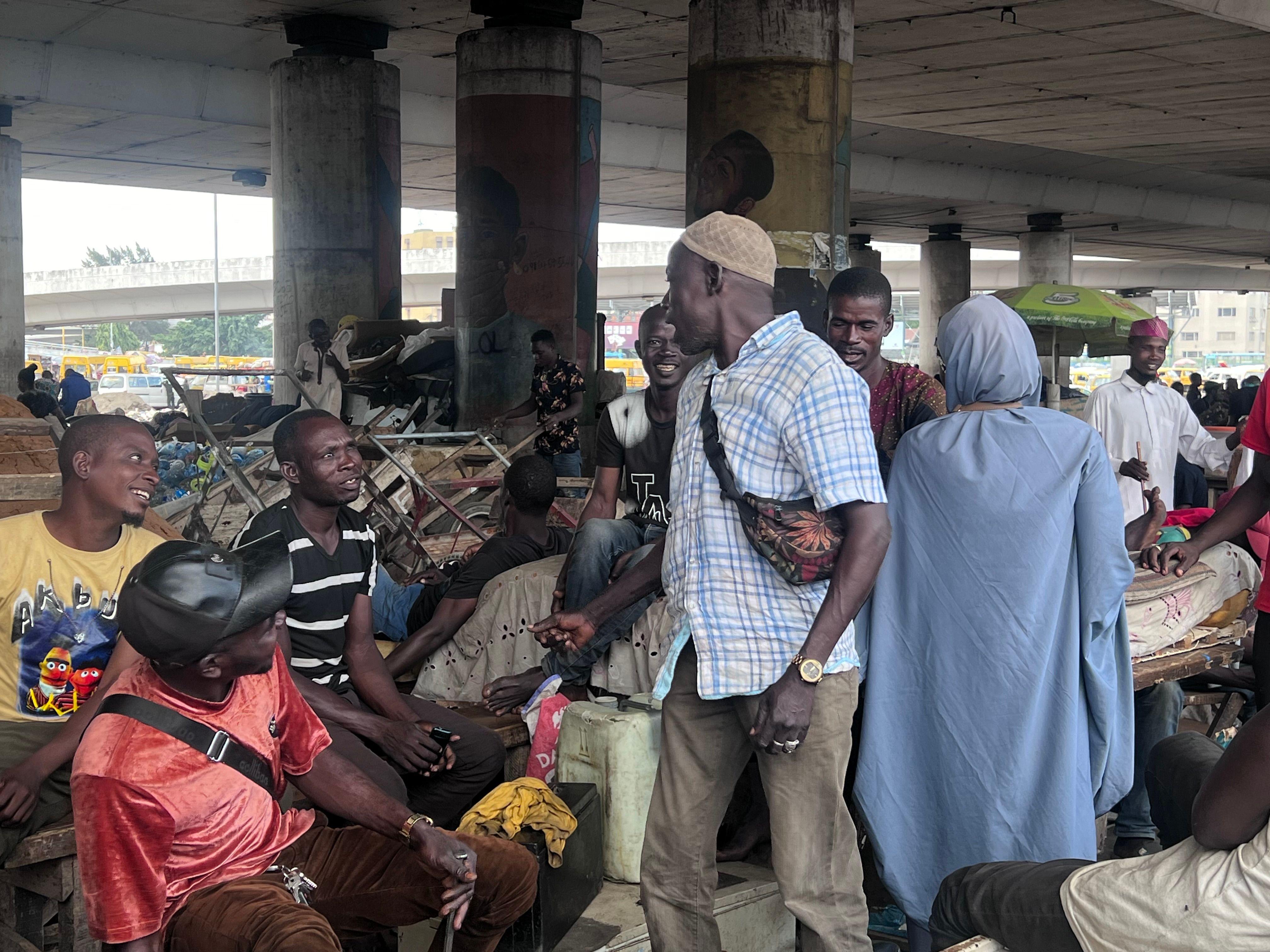
Di area now dem dey call am “Karkashin Gada”, for Hausa language wey mean “Under di Bridge”.
“Di people wey come here sabi someone wey don already dey stay here or get contact wey tell dem about Karkashin Gada,” Oga Sa’adu tok.
“Wen I come here, we dey less dan 10 pipo.”
Adamu Sahara, wey don live for one apartment wey dey close to Karkashin Gada for more dan 30 years, say di homelessness for Lagos dey increase.
“Insecurity [including insurgency by jihadist groups] and Nigeria economy don make many pipo run comot from northern Nigeria,” Sahara tok.
“Nigerian leaders need to dey aware of wetin dey happun so dem go fit fix di problem becos no human being suppose dey sleep under bridge.”
Karkashin Gada longest resident no get plan to return to Zamfara as economic opportunities dia remain small wit kidnapping and banditry wey dey on di rise.
Dis don force many pipo to abandon dia businesses and farms as dem risk kidnapping by gangs wey dey demand ransom payments.
To make life as comfortable as possible, Sa’adu don buy mattress, some bedding, wooden cabinet and mosquito net.
Im don put di mattress on top of di cabinet, and na dia e dey sleep.
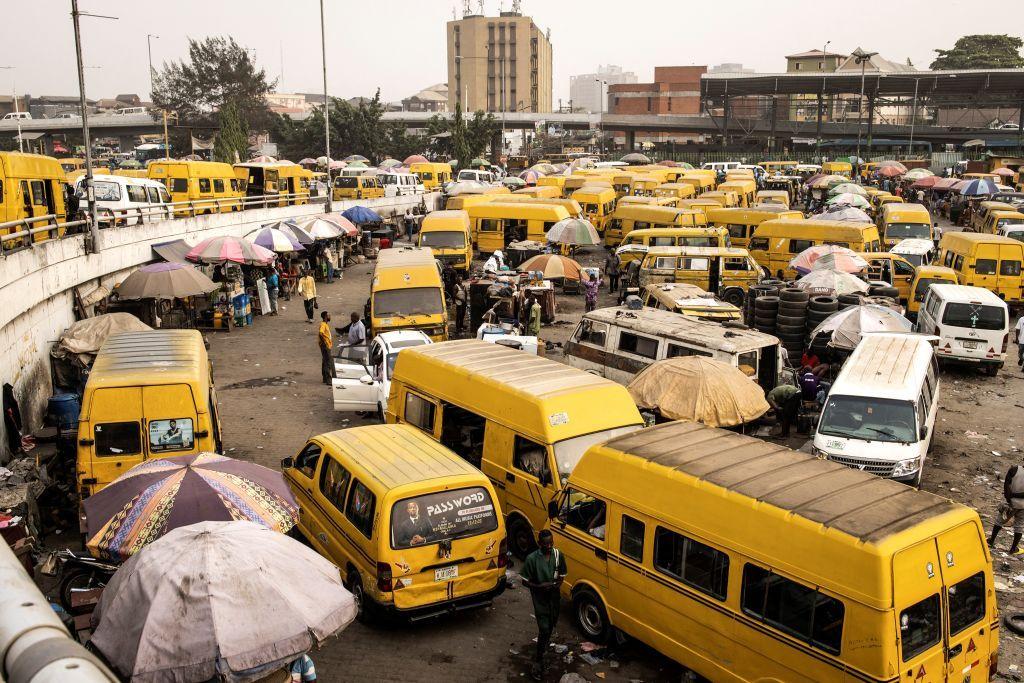
Oga Sa’adu dey among di better-off as some of di oda men wey dey live dia no get furniture, and dey share sleeping mats wey dem put on di floor.
Thankfully di risk of theft don dey minimal as some “residents” of Karkashin Gada dey either work or dey enjoy dia time off.
Dem dey get nearby public bath and toilet wey cost 100 naira ($0.06; £0.05) per visit.
Cooking dey rarely happun for Karkashin Gada as most of di pipo wey dey stay dia dey buy food from vendors wey dey sell dishes popular wit northerners.
“Dis na one of di places in Lagos wia you go see large number of pipo from northern Nigeria so I sell fura [millet flour mixed wit fermented milk] here and I dey happy to say a lot of pipo dey buy,” food vendor Aisha Hadi tell di BBC.
During im three decades for Lagos, Sa’adu don progress from being shoe-shiner to being scrap-metal seller – im dey pick up metal from di streets and workshops for one business wey go den sell am for recycling.
Im dey earn average of 5,000 naira ($3; £2) per day, above di extreme poverty threshold of $1.90 per day but e no dey even reach for am to survive.
“No forget say I gatz to also send money to my family back for Zamfara every week, so na continuous struggle,” Sa’adu tok.
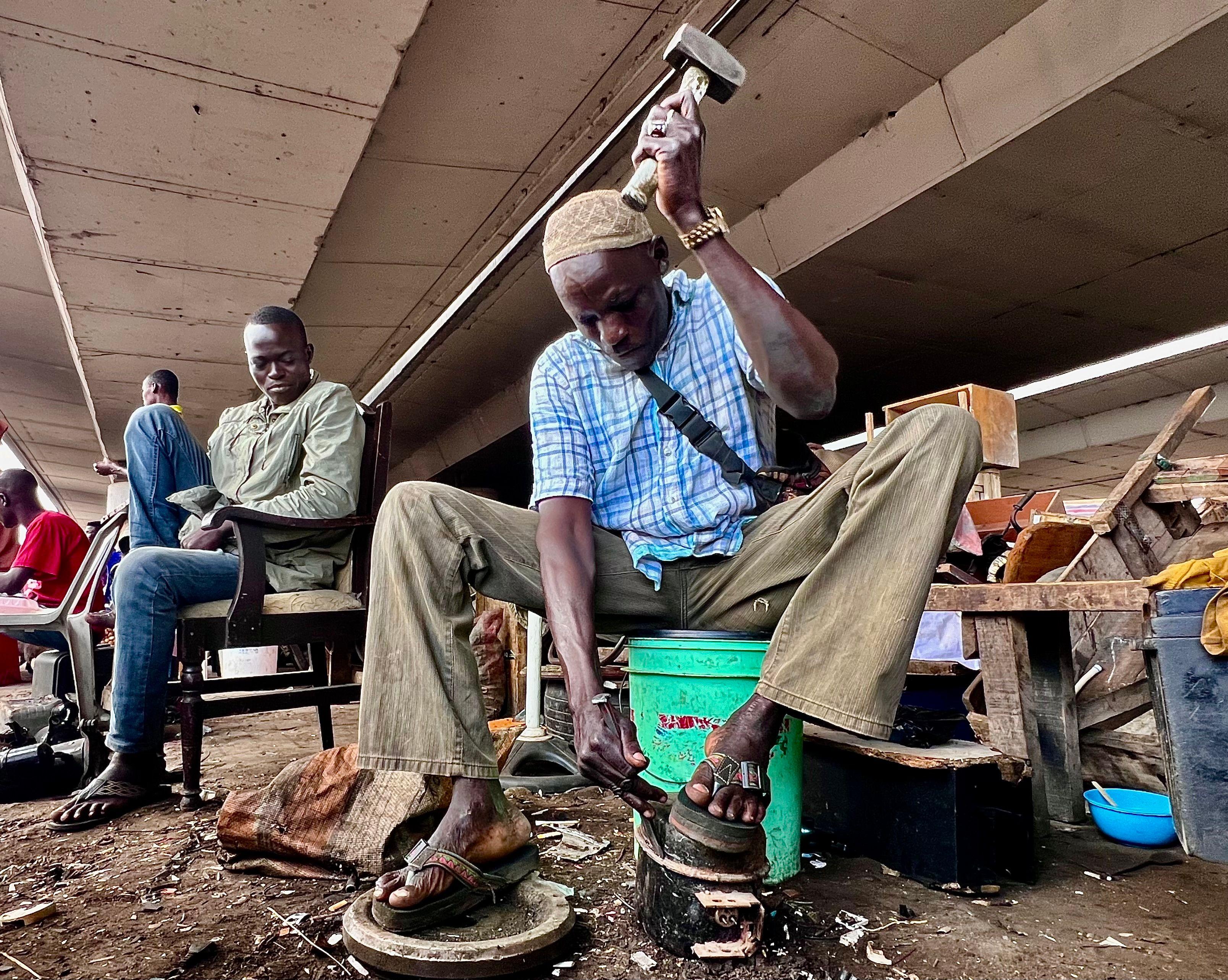
E dey unclear how many pipo dey sleep for Lagos streets, but non-governmental organisations tok say dem reach half-a-million.
In di last few months, di Karkashin Gada community don dey under heavy pressure from di Lagos state environmental task force.
Im officers dey carry out occasional raid as dem say pipo dey live dia illegally.
Pipo wey dem arrest risk fines of up to 20,000 naira ($12; £9), one week income for many of di pipo wey dey live under di bridge.
“Dem dey come around 1am or 2am, to arrest pipo wey dey sleep for here. Wia dem want us to go?” Oga Garba tok, adding dat by morning most “residents” don return.
E urge di goment to show compassion, and “to look into di issue of housing so poor pipo like us fit get good places to live”.
But for Nigeria, di goment no dey provide shelter for homeless pipo.
Instead, di current focus in Lagos na to help pipo on low salaries – such as cleaners, drivers and messengers in offices – to buy homes.
For pipo like Oga Sa’adu, any type of housing for Lagos dey too expensive – to rent small hut for any informal settlement dey cost around 100,000 naira ($48; £62) per year, while for working-class area, small apartment cost around 350,000 naira ($220; £170) annually.
Worse still, many landlords demand one year rent at di time of occupation, wit no plan by di goment to regulate di market despite di fact say di cost-of-living crisis dey make housing expensive for even some young professionals.
Against dis backdrop, di likes of Sa’adu don resign demselves to kontinu to dey live under Obalende Bridge.
“Considering wetin I dey do, e dey difficult to save enough to get decent place to stay,” im tok dis one as e lie down ontop im mattress wit di noise of vehicles wey dey drive just above im head.
“I don already dey used to di sound of cars. E no dey affect my sleep at all especially afta I don tire,” im tok.

